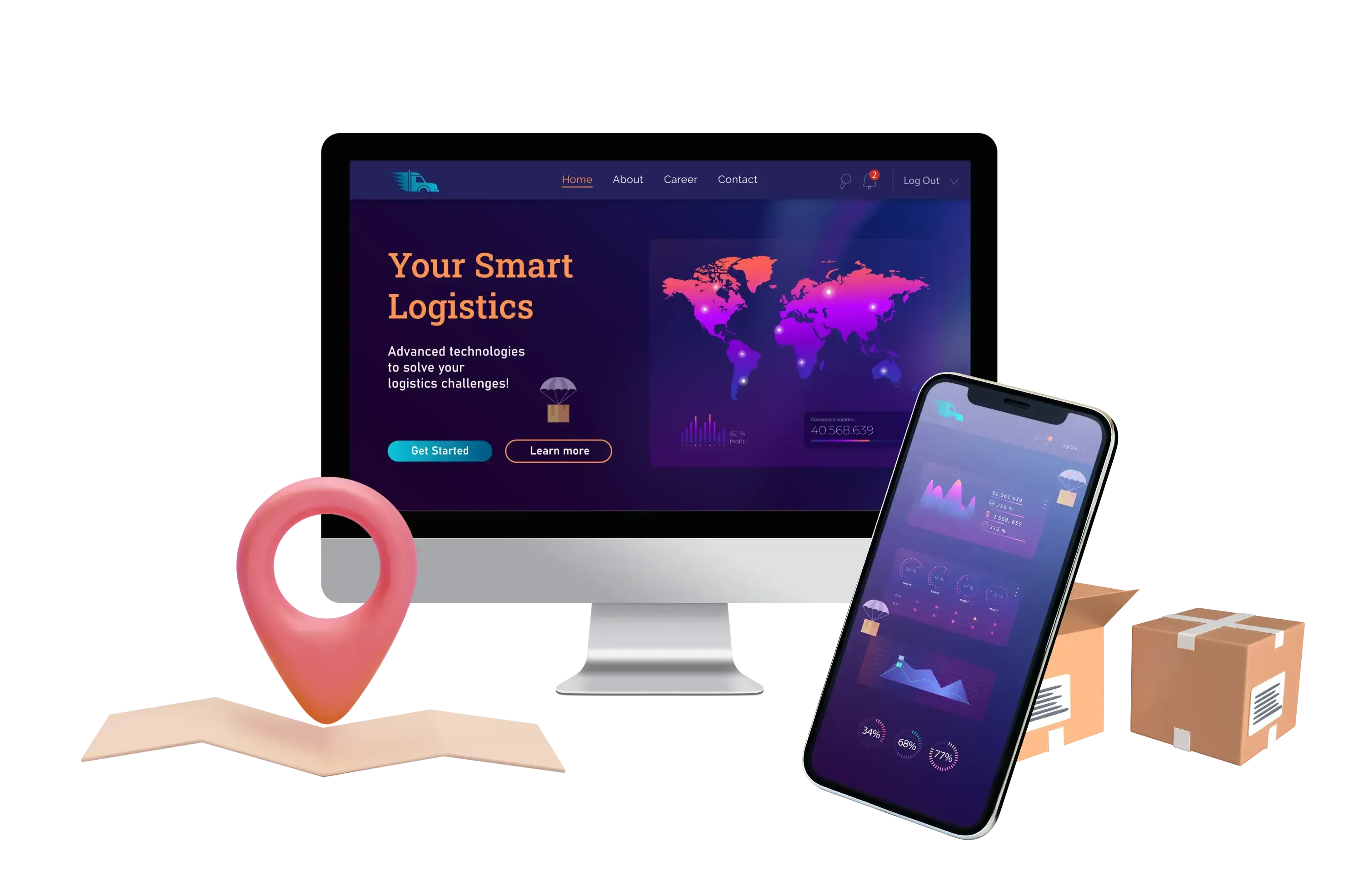
iot platform for logistics it solutions provider
30%
faster delivery
3X
fewer errors
24/7
issue solving
Challenge
Develop a comprehensive logistics solution with IoT technology from scratch to improve delivery times, reduce shipment risk, optimise routing, and more.
Solution
Cutting-edge IoT app with AI technology providing data-driven delivery cost prediction, real-time shipment tracking, and full automation of document management.
Client
Our client is a dynamic and forward-thinking supplier of service IT solutions for the logistics industry. With a strong presence in four countries in their region and a growing customer base, they are committed to delivering cutting-edge solutions to help their clients overcome the unique challenges of the logistics industry.
Challenge
As the logistics industry faced global pandemic and geopolitical instability challenges, supply chain disruptions became the norm rather than the exception. Our client recognised the urgent need for a robust, reliable software solution that could keep up with the rapidly changing landscape and help them stay ahead of the curve.
To meet this challenge, they turned to Modsen, a trusted partner with a proven track record in delivering innovative logistics solutions.
Modsen’s team of 13 software development professionals worked closely with the client to address the following issues:
- Designing and implementing a comprehensive logistics solution from scratch
- Integrating IoT technology to provide real-time tracking and monitoring of cargo
- Developing an intuitive interface to allow users to access and analyse the data from IoT sensors
- Ensuring the software worked seamlessly with other features
- Meeting tight deadlines and delivering the product on time
The team rose to the challenge and worked tirelessly to develop a comprehensive logistics solution that exceeded everyone’s expectations. However, they faced many obstacles along the way, including dealing with complex business processes and data volumes, tackling technical challenges related to integrating IoT technology into the software, ensuring the GPS trackers and other IoT sensors could send data to the software accurately and in real-time, and designing an intuitive interface that would allow users to access and analyse the data from the IoT sensors.
Even with these setbacks, the expert engineers at Modsen persevered and worked together to deliver the software solution on time. The integration of IoT technology provided significant benefits to the logistics industry, including improving delivery times, reducing the risk of lost or stolen shipments, and optimising routing and transportation processes. It is worth noting that only a well-organised, streamlined development process can be effective in handling such a complex and demanding project.
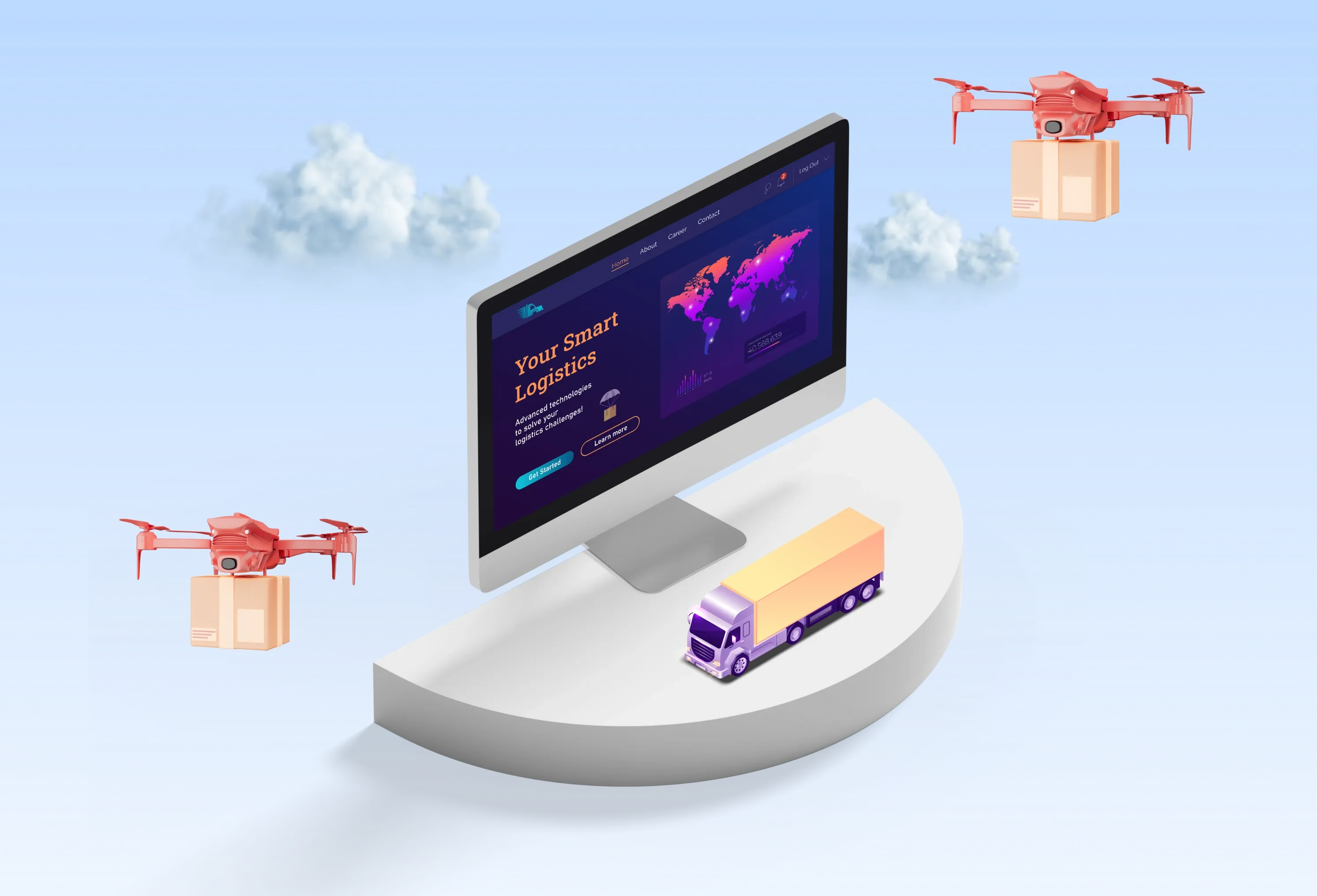

Got a similar software development project on your mind?
Estimate a precise timeframe for its implementation.
Team
3
Java developers
1
Python developer
2
Angular developers
1
DevOps engineer
1
UI/UX designer
3
testing engineers
1
project manager
1
business analyst

Process
1
Initiating Phase
At the project outset, the team performed a comprehensive analysis of the client’s logistics requirements and challenges, exploring ways to leverage technology to overcome them. Working in collaboration with the client, Modsen identified key features and functionalities necessary for the logistics app with IoT integration. They also defined project objectives, scope, constraints, timelines, and budgetary considerations.
Some of the key activities that took place during the initiating phase of the project include:

Establishing the communication channels and protocols that would be used throughout the project
Conducting research and analysis to identify the client’s unique requirements
Assembling a dedicated team of software development specialists with extensive experience in logistics app development
Collaborating with the client to define project objectives, scope, and constraints
2
Discovery Phase
During the Discovery Phase, Modsen delved deep into the client’s logistics operations to identify key pain points and challenges. They conducted extensive research on industry best practices and emerging technologies, gathering insights and data from multiple sources to inform their approach. The team then worked closely with the client to understand their specific needs and objectives, conducting in-depth interviews with stakeholders across the organisation.
Using this information, Modsen’s experts identified key performance indicators (KPIs) that the logistics app with IoT integration must meet. These included real-time tracking and monitoring of cargo, streamlined business processes for order and shipping management, and an intuitive interface for users to access and analyse the data from IoT sensors. They also considered factors such as data privacy and security, regulatory compliance, and scalability to ensure that the final solution would meet the client’s needs both now and in the future.
To visualise their findings and recommendations, the team created detailed infographics and visualisations that clearly communicated complex data and insights. These helped the client understand the key challenges they faced, as well as the potential benefits of implementing a logistics solution.
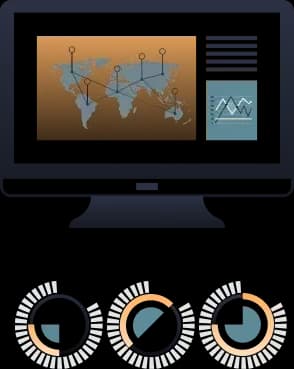
3
Planning Phase
After gathering insights from the Discovery Phase, Modsen’s team initiated the Planning Phase, where they developed a comprehensive project plan that would ensure the successful implementation of the app. Here are the key points included:
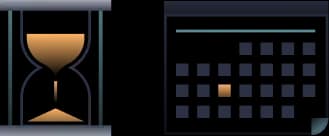
Defining the project objectives, scope, and constraints:
The team worked closely with the client to understand their requirements and expectations. They considered the client’s budget, timeline, and overall project goals to determine the scope of the project.
Identifying project milestones:
Critical milestones in the project plan, such as the completion of software development, testing, and deployment phases were identified. These were used to track progress and ensure the project’s timely delivery.
Allocating resources:
Based on the project scope and milestones, Modsen’s experts identified the resources required for the project. These included human resources, such as developers and project managers, as well as software and hardware resources.
Creating a project schedule:
Using the milestones and allocated resources, the team developed a project schedule that provided a detailed timeline for each phase of the project. The schedule included timelines for software development, testing, deployment, and training.
Managing risks:
Potential risks were identified and strategies were developed to mitigate them. These risks included software bugs, hardware failures, and unexpected changes in project scope or requirements.
Obtaining client approval:
Once the project plan was developed, Modsen’s team presented it to the client for approval. The client reviewed the plan and provided feedback, which was incorporated into the final plan.
By following this comprehensive process, Modsen was able to create a detailed project plan that ensured the successful implementation of the solution.
4
Developing Phase
Innovative infrastructure design:
Modsen developed an infrastructure that leveraged cloud technology for scalability and reliability and included edge computing to optimise data processing and minimise latency. The architecture also incorporated machine learning algorithms for predictive analytics capabilities, empowering the logistics company to make data-driven decisions.
Creative architecture design:
To create a scalable and reliable architecture for the logistics app with IoT integration, a collaborative and iterative approach was employed by the team. They drew upon their extensive expertise and industry best practices to select the most appropriate technologies and tools to meet the project’s requirements. The team identified Java Spring as the framework for building the solution’s backend, while Python was selected for its data analysis capabilities. They also chose AWS for its scalable cloud infrastructure, Angular for developing the app’s frontend, and MySQL as the database management system. The team ensured that the architecture was flexible enough to accommodate future changes and updates and could handle large volumes of data in real time. Additionally, they implemented security protocols to protect the app’s sensitive data, including encryption, user authentication, and access control.
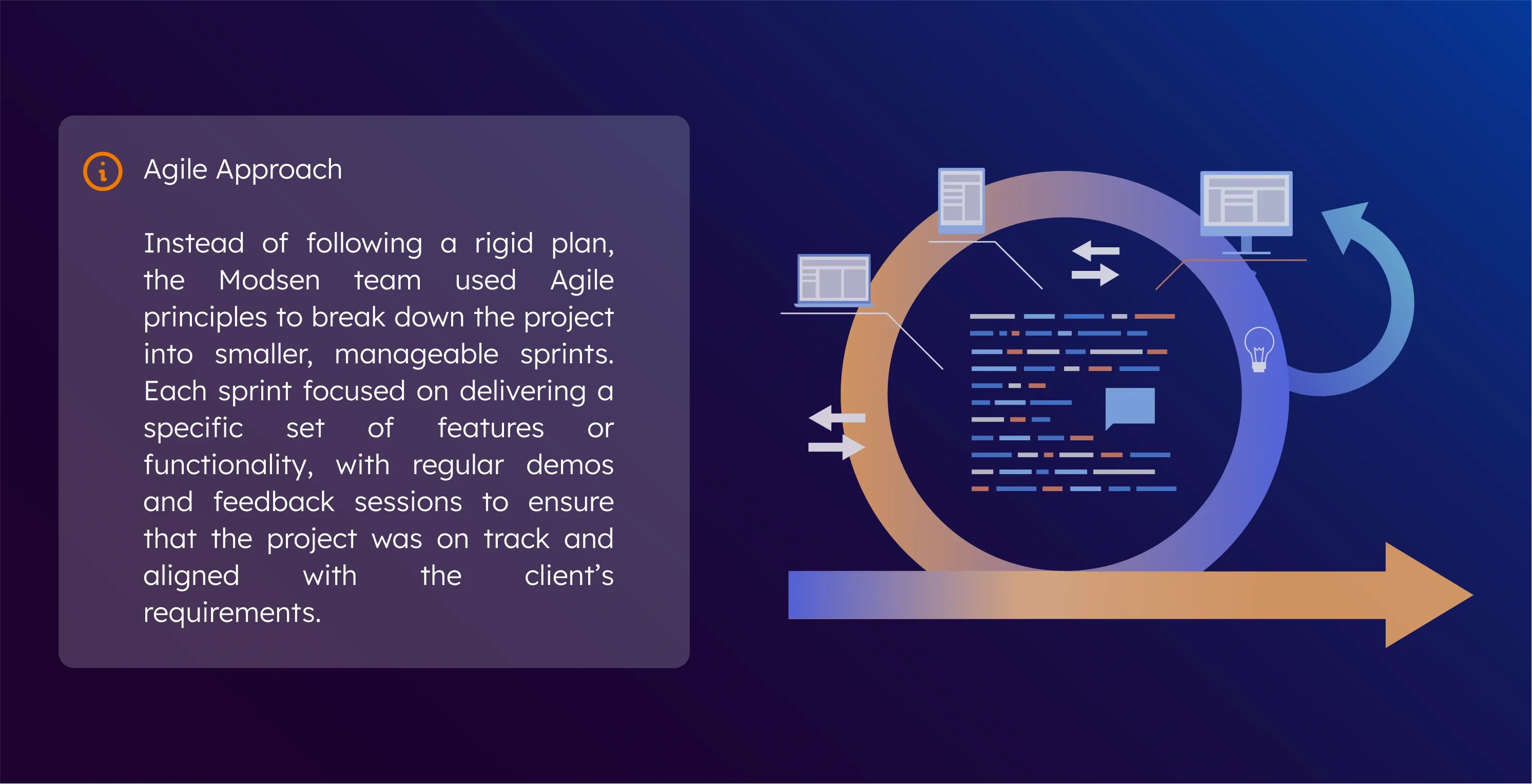
Two-week sprints for quality assurance:
To guarantee that the development process was flexible and responsive to changing business needs, Modsen’s testing and quality assurance team implemented Agile Scrum methodology with two-week sprints. Throughout the solution engineering process, QA testing was conducted to ensure that the logistics app with IoT integration met high standards of quality and reliability. The team utilised automated testing tools and continuous integration to streamline the testing process and increase efficiency.
Agile scrum for flexible deployment:
Modsen’s deployment process was also executed with Agile Scrum methodology, allowing for flexibility and responsiveness to changing business needs. Two-week sprints were used to deliver new features and functionality to production, ensuring a steady stream of updates and improvements.
To automate the deployment process and maintain consistency across different environments, Modsen’s experts utilised infrastructure-as-code (IaC) tools like Terraform. With Terraform, the team was able to define and provision infrastructure using code, making it easier to deploy and manage resources at scale.
The Agile Scrum methodology and IaC tools streamlined the deployment process, allowing for efficient and effective delivery of the app.
Client-driven demos:
Regular demos were held with the client to ensure that the project was on track and aligned with their requirements. Feedback from these demos was incorporated into the development process to ensure that the final product met the client’s needs and expectations
Third-party audit and certification:
Ensuring compliance with industry standards and regulations is critical for any software project, particularly one in the logistics sector. Modsen recognised this and took the following steps to ensure that the logistics app with IoT integration met all relevant compliance standards:
Data Privacy
The team ensured that the solution complied with relevant data privacy laws, such as the General Data Protection Regulation (GDPR) in the EU and the California Consumer Privacy Act (CCPA) in the US. They implemented measures such as user consent mechanisms, data encryption, and secure storage to protect sensitive information.
Security
The app’s security was a top priority, and Modsen’s experts implemented various measures to protect against cyber threats and ensure the confidentiality, integrity, and availability of data. This included network segmentation, access control, penetration testing, and regular security audits.
Industry-Specific Certification
Modsen also ensured that the app met relevant industry-specific certification requirements, such as TAPA FSR (Truck Security Requirements), IATA (International Air Transport Association) Dangerous Goods Regulations, and AEO (Authorised Economic Operator) certification. These certifications are essential for logistics companies to ensure that their operations are secure, efficient, and compliant with international standards.
By meeting these compliance standards, the Modsen software development team was able to provide the logistics company with a secure, reliable, and high-quality solution that met their business needs and regulatory requirements.
Comprehensive acceptance testing:
The final stage of the development process involved comprehensive acceptance testing to ensure that the solution was ready for deployment. The testing included both functional and non-functional testing, as well as user acceptance testing.
5
Closing phase
Modsen’s journey with the IoT platform for logistics has been a remarkable one, and it all comes down to this final phase. With the finish line in sight, the team worked tirelessly to ensure that everything was in place for a smooth and successful launch. Here are some of the highlights from this crucial stage:
Product launch:
Modsen successfully delivered the solution to the client, meeting all their business requirements and compliance standards.
Seamless code transfer:
The code was seamlessly transferred to the client, ensuring a smooth transition into production.
Transfer of documents:
All technical and business analysis documents were transferred to the client, providing them with comprehensive insight into the development process and ensuring future maintenance and updates can be easily performed.
User-friendly guide:
Modsen provided the client with a user-friendly guide, enabling them to use the app with ease and efficiency.
Through Modsen’s commitment to excellence, the client was provided with a secure, reliable, and high-quality logistics solution that met their specific needs.
Product
The development of a cutting-edge IoT app with AI technology made the project highly engaging for the Modsen team. They embraced the challenge and worked closely with the client to bring their vision to life. Throughout the development process, the Modsen specialists shared their perspectives and innovative ideas, adding value to the original concept.
During the project, the team accomplished the following goals:
- AI-driven delivery cost prediction based on 50+ parameters
- In-depth control of the delivery process, including tracking departure, movement graphics, and pop-up notifications with freight information
- Real-time shipment tracking
- App adaptation for mobile devices
- Full automation of document management
- User-friendly information search within the app and a functional messenger in its mobile-adapted version.
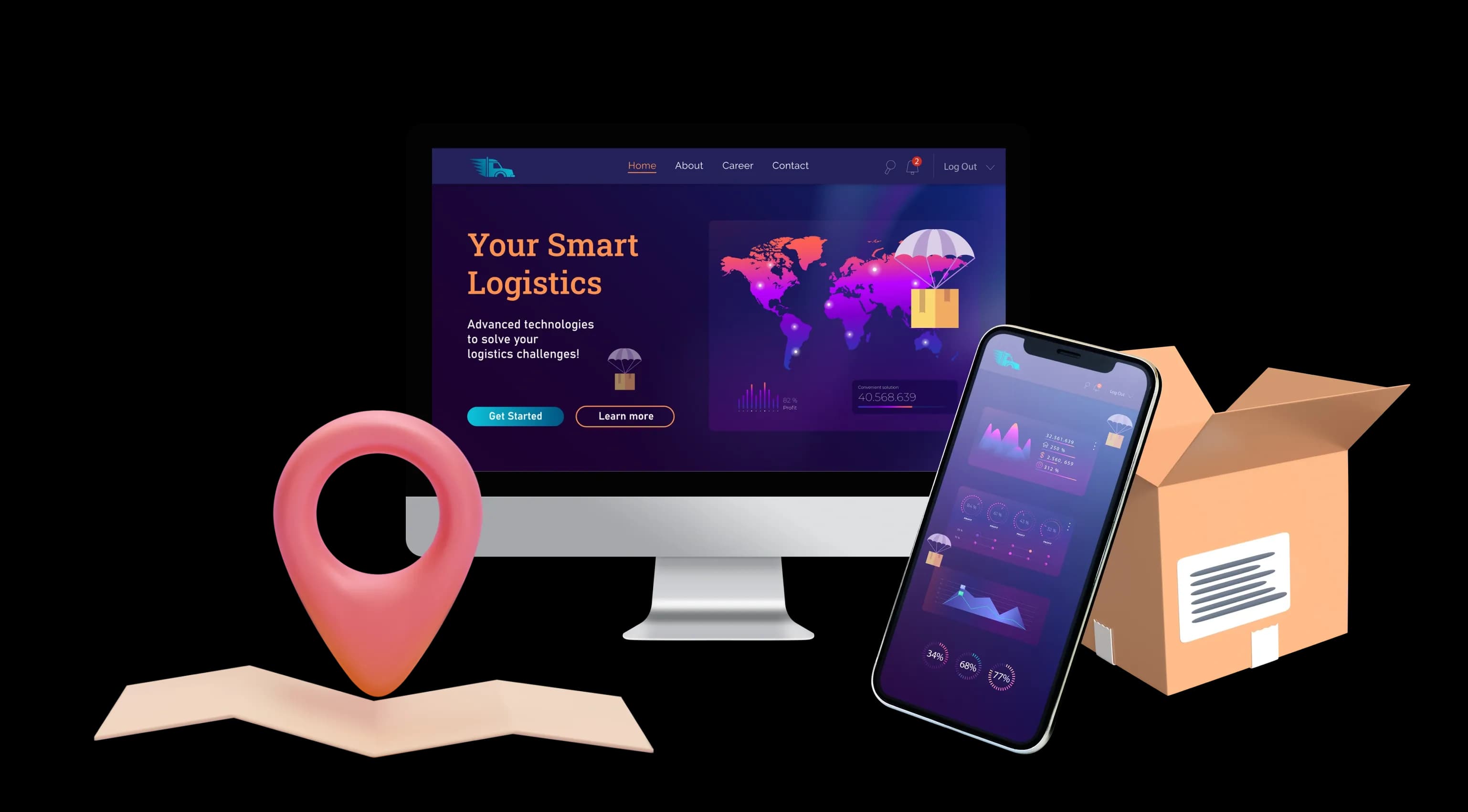
Result
The logistics app with IoT integration developed by Modsen has helped the client achieve impressive results, including:
- 50% reduction in the time required to complete routine tasks and an overall 30% increase in the speed of delivery processes
- A 3-fold decrease in the number of mistakes and emergencies, thanks to reliable process control and planning
- The ability to solve complex tasks 24/7, thanks to automated processes and easy accessibility.
50%
LESS TIME FOR ROUTINE TASKS30%
FASTER DELIVERY SPEED3X
FEWER MISTAKS AND EMERGENCIES24/7
COMPLEX TASK-SOLVING ABILITYLet's calculate the accurate cost and resources required for your project